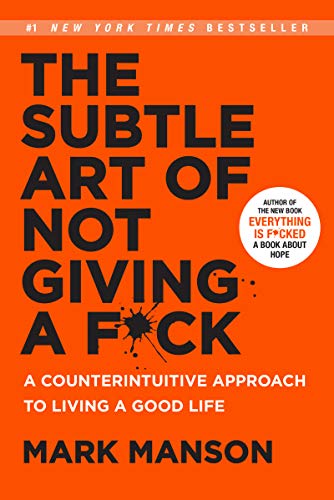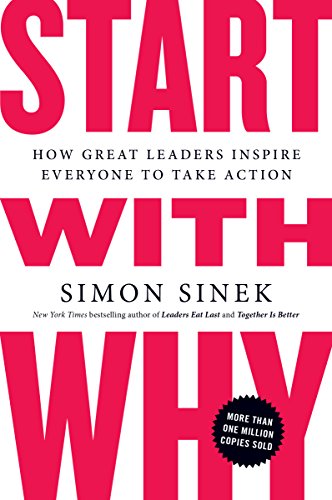Striking the Balance: Mastering Product Development and Marketing for New Business Success

Modern Mentor AI
Posted in Marketing, Business • 5 min read • February 22nd, 2026
Relevant Influencers
Alex Hormozi
Business, Marketing
An American entrepreneur initially started his career as a management consultant, but left this post to pursue a career in fitness, opening his first gym at 23. Within three years, he and his wife established six gym locations, later developing a boutique gym model, which they licensed to 5000+ gyms worldwide. The couple established a supplement and software company to support their gym network, selling a 66% stake for $46.2M in 2021. They then founded a private equity firm, Acquisition.com, managing 16 companies with a collective annual revenue of $200M by 2023. The duo now focuses on providing business education, publishing books and free courses for entrepreneurs.
Patrick Bet-David
Business, Marketing
Escaping from the Iranian Revolution of 1978, Patrick Bet-David ended up in a German refugee camp before migrating to America. After serving in the U.S Army and being introduced to entrepreneurship, he launched his own companies. As the CEO of PHP Agency, Inc. and Valuetainment Media, LLC, and a 4x published author, Bet-David has over 10 million followers across different media platforms. Known for his engaging, provocative content, he covers a diverse range of topics on his successful YouTube channel, Valuetainment. His partnerships include famous personalities like Gabriel Brenner, Oscar De La Hoya, and Atalaya Capital Management.
Gary Vaynerchuk
Business, Marketing
The entrepreneur gained financial success by expanding his family's wine business from a $3M to a $60M venture in five years before launching VaynerMedia, a popular digital agency. He has made strategic investments in companies like Facebook, Twitter, Uber, and Birchbox. He also co-founded VaynerRSE, a $25M investment fund. He hosts the #AskGaryVee Show, offering advice on entrepreneurship, based on his personal experiences. He is a respected public speaker and has received recognition by Fortune and Crain’s 40 under 40 lists. His life and accomplishments have been profiled in several major publications.
Allan Dib
Business, Marketing
Allan Dib is a successful serial entrepreneur, innovative marketer, and bestselling author, who has created and expanded several businesses across different industries. Despite intense competition in the telecommunications sector, one of his startups was recognized as one of Australia's fastest growing companies just four years post-launch, making it into BRW's Fast 100 list. Dib is dedicated to helping businesses harness technology and marketing to accelerate growth. He is a popular business coach, consultant, and speaker, offering his proven strategies and advanced tactics globally.
Rob Fitzpatrick
Business, Marketing
Rob Fitzpatrick is an author, entrepreneur, and business mentor. Over 14 years, he's run numerous small businesses and shared his knowledge in three handbooks: The Mom Test, The Workshop Survival Guide, and Write Useful Books. His books are studied at Harvard, MIT, and UCL, while companies like SkyScanner and Shopify utilize them for training. Having run training programs for companies like HP and Sony Mobile, he's also helped mentor numerous startups. His advice is practical and proven. Fitzpatrick also shares insights via short YouTube videos and more information about him can be found at robfitz.com.
Jake Knapp
Business, Marketing
Jake Knapp, author of "Make Time" and "Sprint", is renowned for creating the design sprint during his decade at Google and Google Ventures. He has mentored 150+ companies such as Slack, Uber, New York Times and LEGO, teaching his process. He is based in San Francisco where he resides with his family.
Donald Miller
Business, Marketing
The CEO of Business Made Simple, an online platform designed to foster growth among small businesses, is also acclaimed as a successful author. His most popular work is the best-selling book 'Building a StoryBrand'. Apart from being a business expert and a writer, he also hosts the Business Made Simple podcast. He resides in Nashville, Tennessee with his wife and daughter.
Marty Cagan
Business, Marketing
Marty Cagan, founder of the Silicon Valley Product Group, is a renowned figure in the tech industry who was previously an executive at notable companies like Hewlett-Packard, Netscape, and eBay. His expertise spans product management, software development, product marketing, user experience design, software testing, and general management. He also offers guidance to tech organizations via SVPG. A prominent author, his written works include "INSPIRED: How To Create Tech Products Customers Love", "EMPOWERED: Ordinary People, Extraordinary Products", and "TRANSFORMED: Moving To The Product Operating Model". He is also a distinguished keynote speaker.
Brendan Kane
Business, Marketing
Brendan Kane is a forward-thinking strategist for Fortune 500 companies, celebrities, and brands, specializing in audience engagement. He began his career at Lakeshore Entertainment, pioneering the company's first influencer campaign and working on films generating a $685m worldwide gross. Kane later developed platforms and applications for high-profile clients such as Taylor Swift and Rihanna, accessed by over 50 million people globally. He co-created an advertising technology with MTV, utilized by companies like MGM, Lionsgate, and Sony. Past roles include Vice President of Digital for Paramount Pictures and leading a major social optimization firm. Known for acquiring a million followers in under 30 days, Kane wrote bestseller One Million Followers to share his methods.
Russell Brunson
Business, Marketing
A serial entrepreneur began his first online venture during his wrestling days at Boise State University. Within a year of graduation, he had already sold over a million dollars' worth of his own products from his basement. For more than a decade, he has been starting and growing online businesses. He owns a software firm, a supplement company, a coaching company and is a top-ranked affiliate. The scion also created DotComSecrets to assist entrepreneurs globally in launching, promoting and expanding their online businesses.
Starting a business is an exciting venture filled with opportunities and challenges. As you embark on this journey, focusing on the right aspects can significantly impact your success. While legalities are important, the growth of your business depends on more practical, day-to-day decisions and strategies. This article will explore four critical areas to concentrate on when starting your business, emphasizing the balance between marketing and improving your business, and weighing the importance of the product versus marketing.
1. Understanding Your Market and Customers
Before diving into marketing strategies or product development, gaining a deep understanding of your market and customers is crucial. This involves researching your target audience, understanding their needs, preferences, and pain points, and identifying how your product or service fits into the market. This foundational knowledge will guide your decisions in every other aspect of your business, from product development to marketing messaging.
Actionable Steps:
- Conduct market research to identify your target demographic and their characteristics.
- Engage with potential customers through surveys, interviews, and social media to gather insights.
- Analyze competitors to understand their strengths and weaknesses and identify gaps in the market.

2. Balancing Marketing and Product Development
Finding the right balance between marketing your business and improving your product or service is crucial. Both elements are essential, but focusing too much on one can lead to neglecting the other, which can hinder your business growth.
Marketing:
Marketing is vital for getting your business noticed and attracting customers. It involves a mix of strategies, including digital marketing, content marketing, social media engagement, and traditional advertising. Effective marketing increases your visibility, builds your brand, and drives sales.
Actionable Steps:
- Develop a comprehensive marketing plan that aligns with your business goals and target audience.
- Utilize digital marketing tools like SEO, PPC, and social media to reach your audience effectively.
- Measure and analyze the effectiveness of your marketing campaigns to continually optimize and improve.
Product Development:
While marketing draws customers in, your product or service is what keeps them. Continuously improving your offering based on customer feedback and market trends ensures that your business stays relevant and competitive.
Actionable Steps:
- Implement a system for collecting and analyzing customer feedback.
- Invest in research and development to innovate and improve your product or service.
- Stay informed about industry trends and advancements to ensure your offerings remain competitive.
3. Prioritizing the Product or the Marketing
One of the perennial debates in the startup world is whether the product or marketing is more important. The truth is, they are interdependent, and success often lies in finding the right equilibrium.
Product: A superior product meets the customers' needs and exceeds their expectations, creating a foundation for customer loyalty and word-of-mouth marketing. It's the core of your business, and without a solid product, even the best marketing strategies can fall flat.
Marketing: No matter how good your product is, it won't sell if people don't know about it. Marketing is the engine that drives awareness, interest, and ultimately, sales. It communicates your product's value to your target audience and convinces them to choose you over competitors.
Finding the Balance: The key is to develop a great product, then use marketing to tell its story effectively. In the early stages, focus on creating a minimum viable product (MVP) that solves a core problem for your target market. As you gather feedback and refine your product, ramp up your marketing efforts to spread the word and attract more customers.

4. Leveraging Technology and Automation
In today's digital age, leveraging technology and automation can give your business a competitive edge. Technology can streamline operations, automate repetitive tasks, and provide valuable data insights, allowing you to focus on strategic activities that drive growth.
Actionable Steps:
- Use customer relationship management (CRM) systems to manage customer interactions and data.
- Implement project management tools to streamline workflows and improve team collaboration.
- Utilize analytics tools to gain insights into customer behavior, marketing campaign performance, and operational efficiency.
Starting a business requires a delicate balance of focusing on the right aspects that drive growth and success. Understanding your market and customers provides a solid foundation for all your business decisions. Balancing marketing efforts with product development ensures that you attract and retain customers with a compelling offering. Recognizing the interdependence of product and marketing helps in prioritizing efforts and resources effectively. Finally, leveraging technology and automation can streamline operations and free up time to focus on strategic growth initiatives. By concentrating on these four areas, you can set your business on a path to success, ensuring that you not only attract customers but also deliver value that keeps them coming back.
Relevant books
Relevant Influencers
Alex Hormozi - 436
From public sector consultant to fitness entrepreneur, he built a global gym franchise, software company, and investment firm.Patrick Bet-David - 360
Iranian escapee to German refugee became US Army veteran, entrepreneur, CEO, media personality, and author.Gary Vaynerchuk - 347
A successful entrepreneur, he grew a $3M family business into a $60M venture, now runs a leading digital agency, invests greatly, and hosts a popular business insights show.Allan Dib - 206
Serial entrepreneur and best-selling author, started and sold businesses in varied industries, named in BRW Fast 100 list.Rob Fitzpatrick - 163
Business owner and author of three enduring handbooks used in universities and companies globally.Jake Knapp - 93
Author of "Make Time" & "Sprint", created design sprint at Google, coached 150+ companies.Donald Miller - 64
CEO of Business Made Simple, podcast host and bestselling author based in Nashville, Tennessee.Marty Cagan - 62
Tech executive with experience at eBay, Netscape, and HP, founded SVPG, is an author and global speaker.Brendan Kane - 0
Innovative digital strategist successfully designing ad tech for brands, celebrities; garnered 1M followers in <30 days.Russell Brunson - 0
Serial entrepreneur who achieved millionaire status within a year of college, now owns multiple companies.Relevant Books

Rich Dad Poor Dad: What the Rich Teach Their Kids About Money That the Poor and Middle Class Do Not!
93125

The Gifts of Imperfection: Let Go of Who You Think You're Supposed to Be and Embrace Who You Are
40836

















